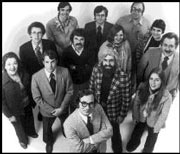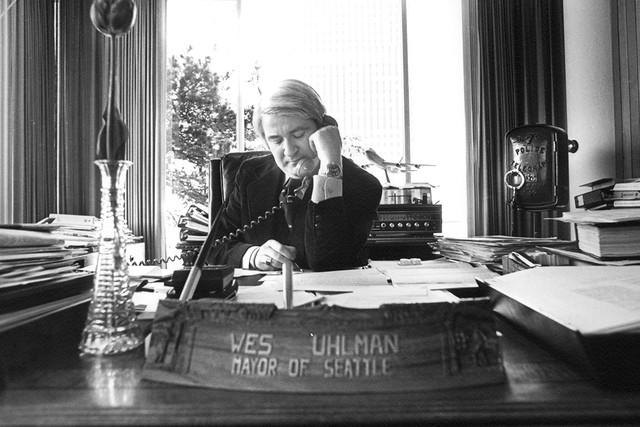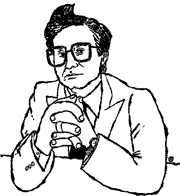DARRELL OLDHAM, co-founder of Seattle Weekly in 1976 and a mentor/ friend/guru to a whole generation of alternative weekly colleagues, died Saturday (Feb. 16) from lung cancer. He was much too young, a still vital 64. You wouldn’t be reading this paper if it weren’t for Darrell.
Darrell came to Seattle and alternative journalism at a critical moment. He was the right person at the right time. He made it safe for these papers—then mired in editorial egos and suspicion of advertisers—to do business the right way and therefore to learn how to thrive and endure. The underground press, dying away as the Vietnam War faded from our politics, needed to morph into an independent, alternative voice with a broader base and sustainable economics. Darrell was a key individual in figuring this out, and I was privileged to watch him do it.
He was in charge of the business side of Seattle Weekly from its first issue in 1976 until he left for a job at The Seattle Times in 1984. He made three key moves. The first was to treat advertisers as friends, fellow little guys who needed a vehicle so they could afford to advertise and reach a trusting audience. He taught us to think that fringe theater companies and ethnic restaurants were just like Seattle Weekly: small businesses trying to build a community of customers and up against the slicks and the dailies. He taught the ad staff to identify with these companies, helping them spend their ad dollars wisely, not lavishly, and to celebrate their successes as businesses, not just sell them ads.
His second move was to hire a business staff that really cared about editorial independence and quality, people who knew that if readers trusted the paper, they would transfer that credibility to the advertisers. That made a respectful company culture that was always a joy to work for. Many fascinating people on the business side became good friends with those on the editorial side.
Darrell’s third move was to conceive and build a national organization, the Association of Alternative Newsweeklies, so that these scattered papers would teach each other a new form of publishing and feel much less lonely. Darrell cooked up the idea one day in 1978 and had the good sense to make the first national convention (at Seattle Center) focus on mentoring and sharing business tips—not editors boasting about their pure politics and breathtaking scoops. Earlier efforts at a national gathering had ended in uproars. Darrell’s approach ended in a national movement.
His heart stayed in this world. Working at the Times had its rewards in some local organizations he helped found, such as Northwest Bookfest, but the large bureaucracy offended his alternative soul. In the last few years, he was back helping small publishers, finding good jobs for good people, and talking business clients into putting editorial quality first. He had a very gentle way of putting difficult truths. He didn’t put on airs. He and his family thrived in the sociable communities of Montlake and Vashon. Everybody liked Darrell, and many loved him.
Darrell and I had lunch a few weeks ago, before the cancer imposed its dreadful, swift decline. Joining us were Gordon Bowker, his longtime friend who had introduced us as business partners, and Mike Crystal, whom Darrell had spotted—and who later became his successor—at the Weekly. We all talked politics, as usual, and then shared memories of the antics we enjoyed in the first, start-up years. Darrell told us how much our friendship had meant to him these many years. I reminded him of the story of how he moved here without much assurance that we could even get the paper funded and launched, in part because he wanted to leave Denver and live in a port city close to salt water. Really, I asked? Gordon said it was true, this salt water thing. He remembered how Darrell would spend long periods staring out at Puget Sound, out toward Vashon where he would come to settle and die. He could see into the mists. He could see the boat coming in.
Darrell Oldham is survived by his wife, Leslie, daughter, Sarah, and sons David, Noah, and Andrew—all of the Seattle area. A memorial service will be held Mon., Feb. 25 at St. Mark’s Cathedral. Memorial gifts should be directed to Providence Hospice of Seattle, 425 Pontius N., Suite 300, Seattle, WA 98109.
David Brewster was co-founder of Seattle Weekly, serving as its editor and publisher from 1976 to 1997.






